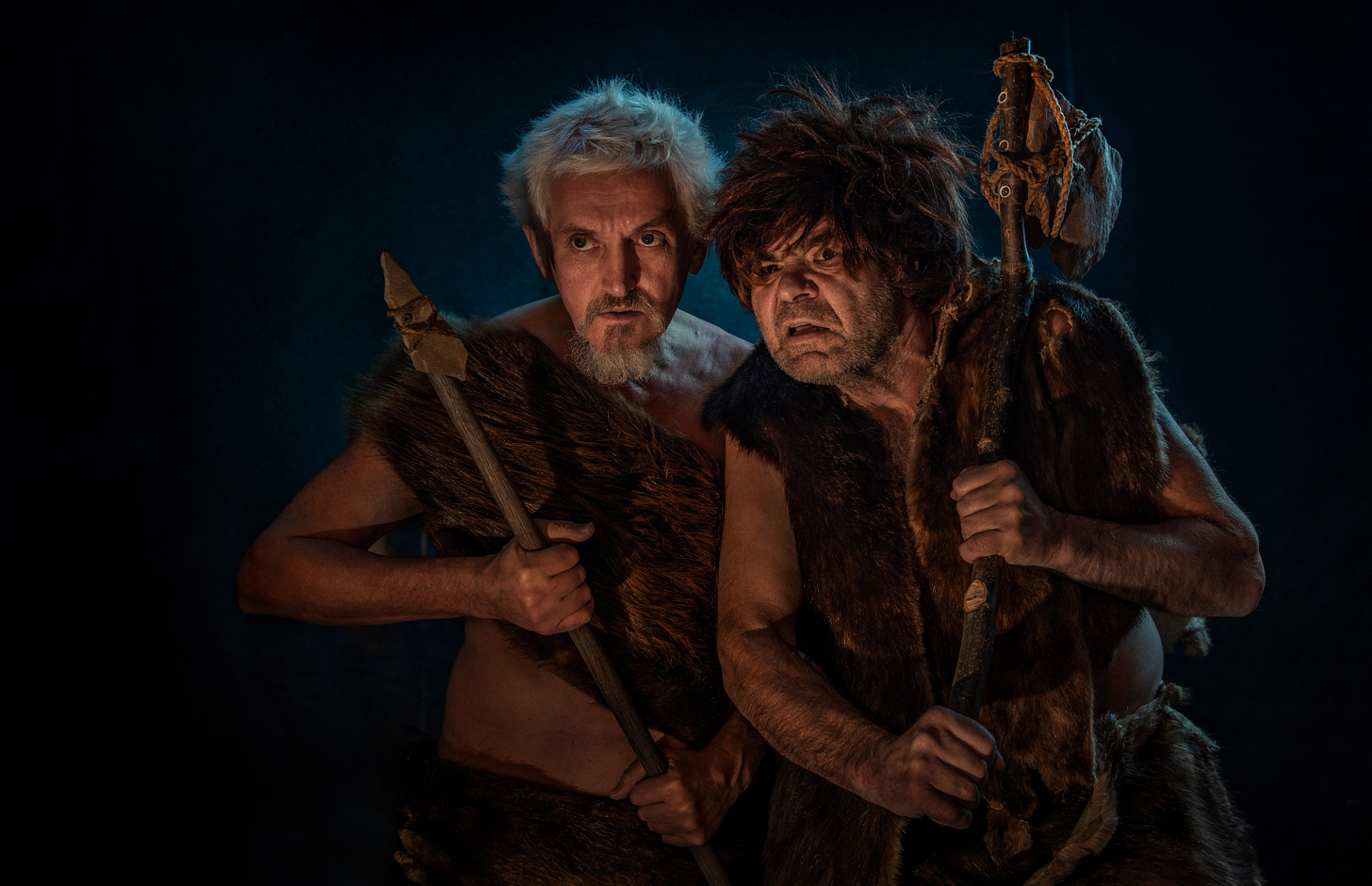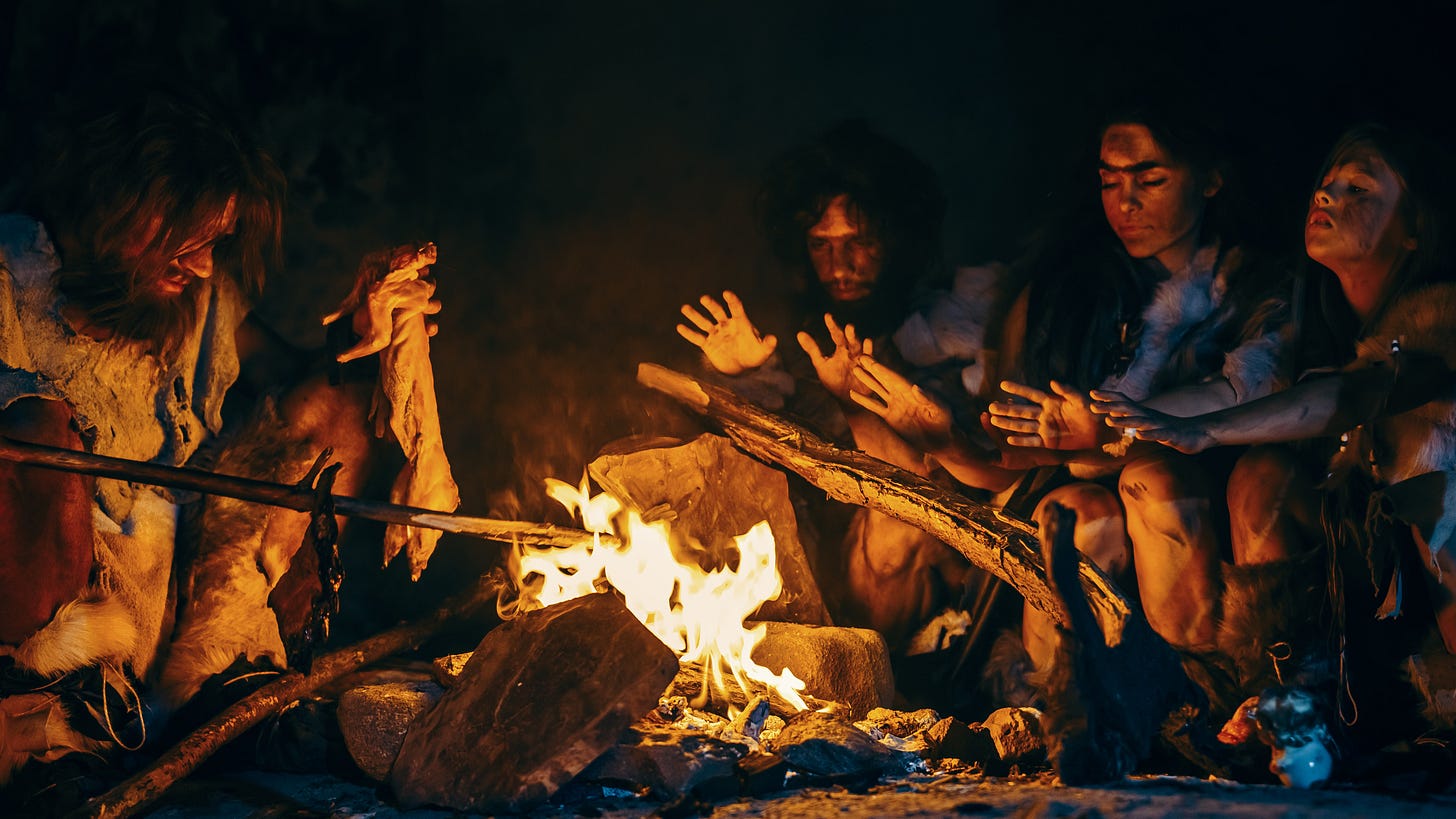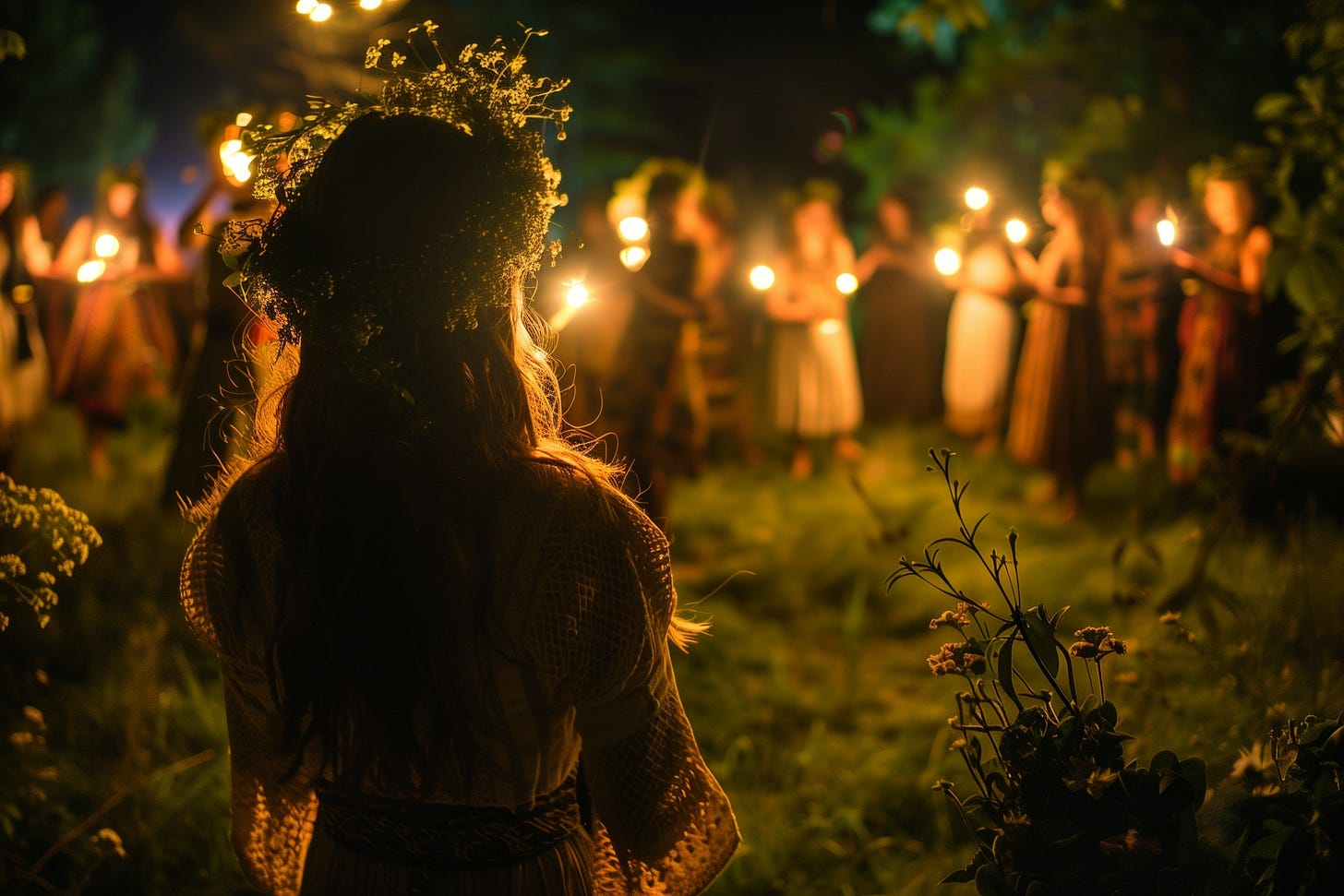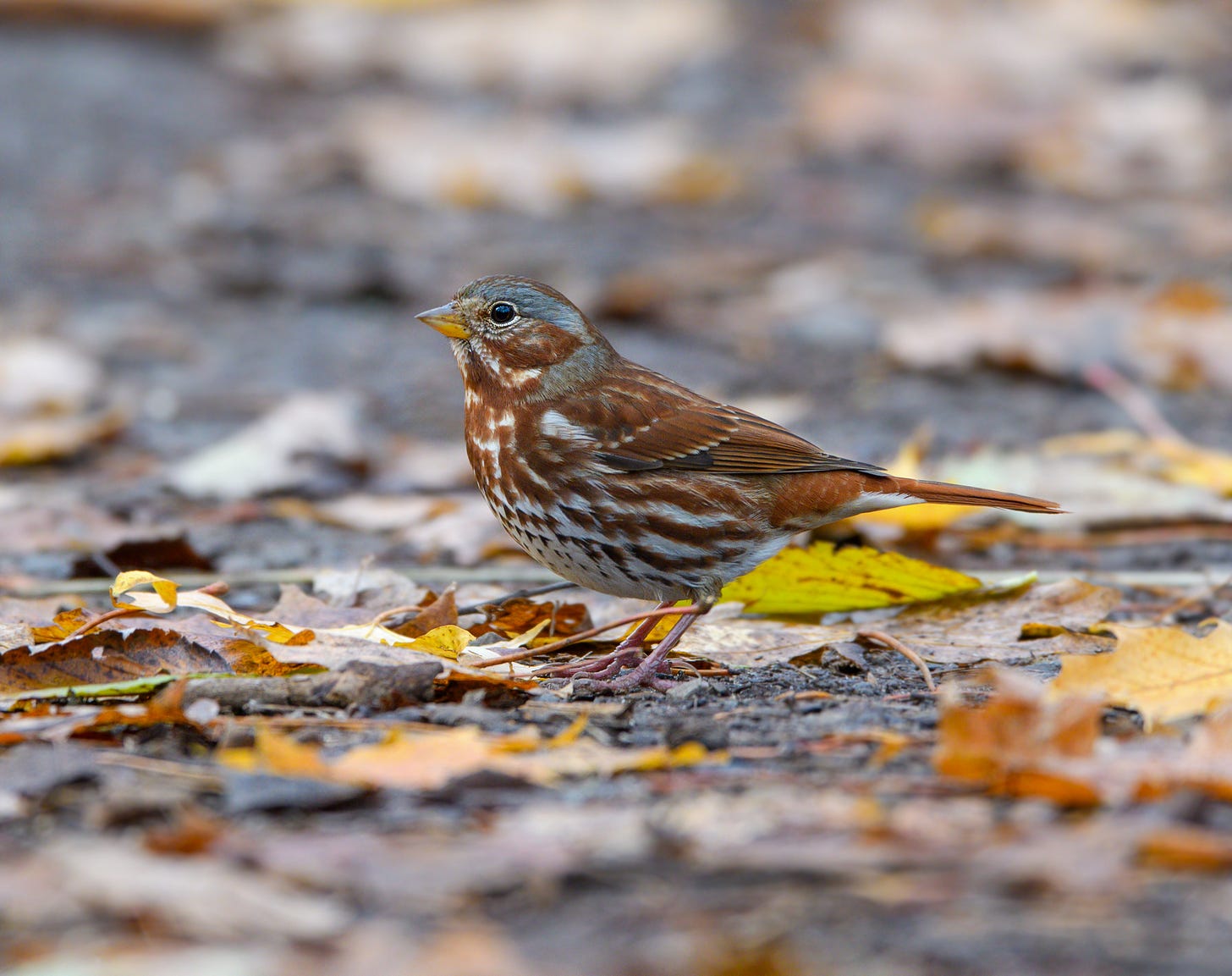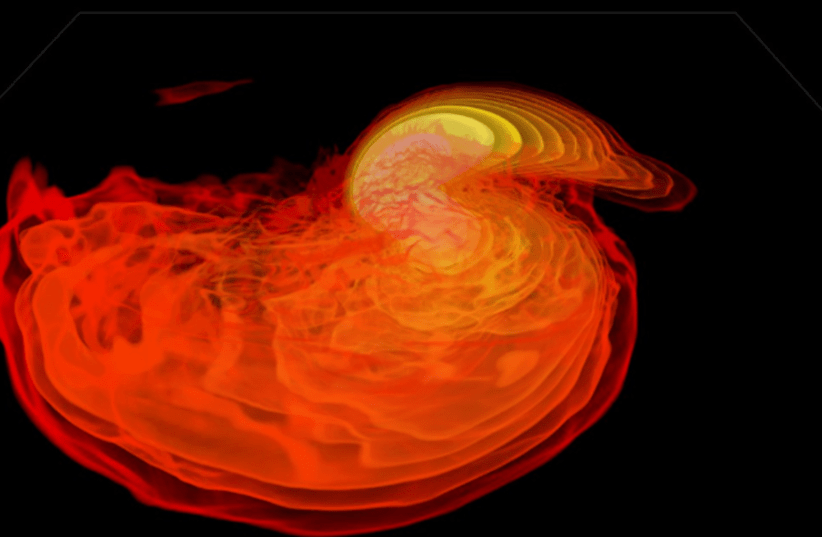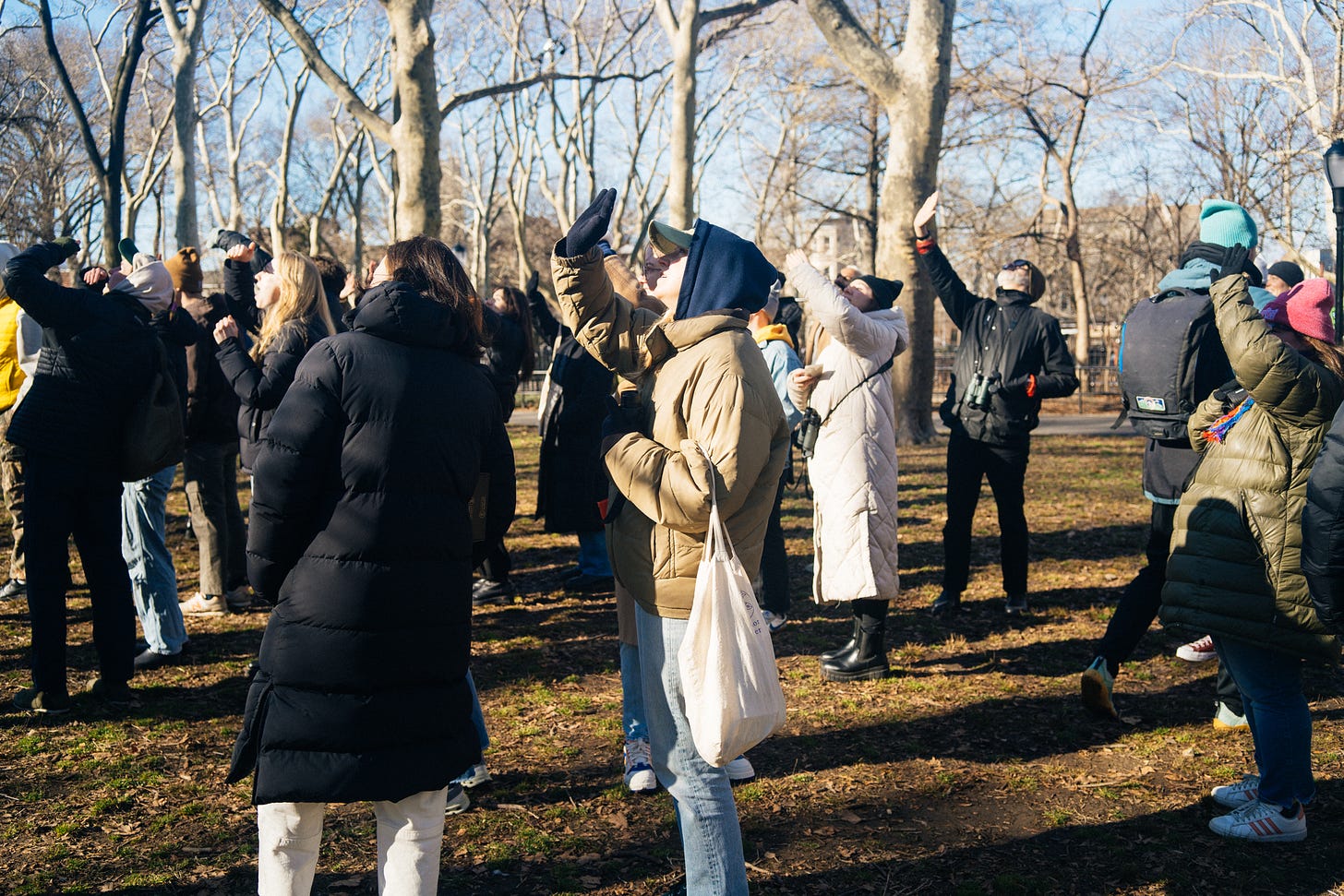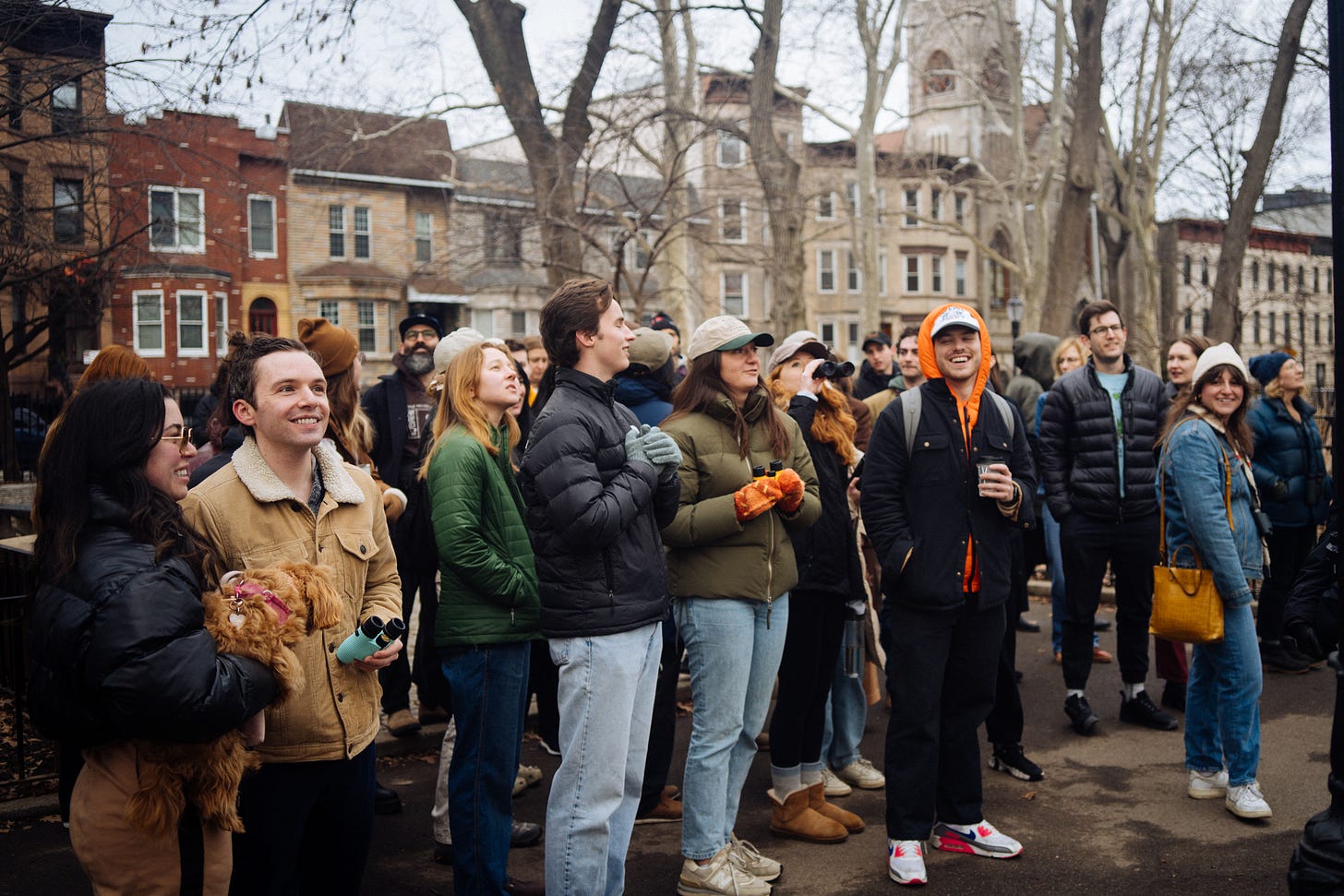Birdwatching feels good because when you deeply notice the natural world, you’re doing what human animals evolved to do. It’s a satisfying return to form.
But evolution cuts both ways. Whereas primate intelligence, at its best, wants truth, order, logic, reason, love, and beauty; very primitive, Paleolithic emotions, like fear of the unknown and hatred of the unfamiliar, remain.
On the savannah, such base inclinations served us. In the modern age, not so much. Fear-mongers and con men, even the most obvious and vile among them, successfully exploit those emotions—loosing dark energy among otherwise decent people—for their own benefit.
If you find yourself in a bad way this micro-season, know that you’re not alone. (Admittedly, your correspondent wrote this through just-receding waves of nausea.) Recommendations:
Prioritize your mental health. Your new mantra is Treating myself like a precious object makes me strong (Julia Cameron) or Caring for myself is not self-indulgence, it is self-preservation and that is an act of political warfare (Audre Lorde) or, surprise, surprise: Do nothing (Jenny Odell).
Avoid the news. Delete your news apps (or at least turn off home screen notifications), remove news content from your social feeds, and tomahawk unread Times issues at men wearing red hats. Bad news, especially concerning human rights, health care, and the environment, always has, and always will, exist. Pace yourself.
Take the long-view. Truth, order, logic, reason, love, and the beauty of this strange world, where life eats sunlight, aerates, farts, risks new shapes, finds wild kin, lichenizes, dies and co-becomes—it’s all too powerful for a circus of embarrassing blowhards to ruin in a few years, the epochal equivalent of a zeptosecond.
Rest assured. If a real fight comes to us, we can and will engage. The forces of nature, of good, are on our side.
MICRO-SEASON — NOV 4 - NOV 10
Every age, every culture, every custom and tradition has its own character, its own weakness and its own strength, its beauties and ugliness; accepts certain sufferings as matters of course, puts up patiently with certain evils. — Herman Hesse, author and witness to the horrors of two world wars
Current Japanese micro-season: "Maple leaves and ivy turn yellow". As for McGolrick Park, New York City and perhaps even larger swathes of the eastern US, we notice—
Black-capped chickadees visit · Clouds of insects · Collective nausea
BIRD REPORT
Who’d we notice in McGolrick Park this micro-season?
Black-capped Chickadee · Tufted Titmouse · White-breasted Nuthatch · Red-tailed Hawk · Cooper’s Hawk · American Kestrel · White-throated Sparrow · Fox Sparrow · Song Sparrow · Dark-eyed Junco · Hermit Thrush · Downy Woodpecker · Red-bellied Woodpecker · Yellow-bellied Sapsucker · Northern Flicker · Northern Cardinal · Canada Goose (flyover) · Blue Jay · Red-winged Blackbird (flyover) · Common Grackle · American Crow · Rock Pigeon · European Starling · American Robin · House Sparrow · Mourning Dove
MICRO-BIG PICTURE: BLACK HOLES
Astronomers recently discovered that, in the distant galaxy LID-568, a black hole 7.2 million times bigger than our Sun consumes light, gas, dust, stars, planets, and other black holes—everything—at a rate over 40 times faster than the theoretical limit.
Reconciliation with unpredictability, in the world of science, is a starting point. In the political realm, however, instability—especially in the form of a reason defying, seeming evil—can be frightening, painful, and debilitating.
But both of these dimensions—science and politics—are just that: slices of a vast whole. Reality is mysterious, bending, rhythmic, balanced in opposites, adaptive. Let’s notice what’s next as it comes.
“A society must assume that it is stable,” James Baldwin once wrote. “But the artist must know, and he must let us know, that there is nothing stable under heaven.” In the instability, the possibility; in the chaos, the building blocks of a stronger structure. —Maria Popova, A Lighthouse for Dark Times
EPILOGUE
In chaos and possibility, we remain. Please like and share this newsletter, or subscribe to the ~$5/ month paid tier. For a few measly bucks every month—like, the cost of a coffee—you get perks such as access to members-only events, free signature merchandise, etcetera! Plus you help to support McGolrick Bird Club and this digital digest.




